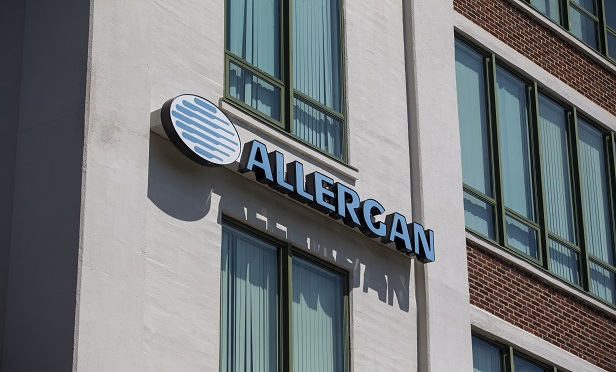
 (Photo: Scott Eisen/BB)
(Photo: Scott Eisen/BB)
Allergan PLC faced a skeptical appeals court Monday as the company defended its use of an American Indian tribe's sovereign immunity to avoid challenges to its patents from generic-drug makers.
Two of three judges on the U.S. Court of Appeals for the Federal Circuit in Washington questioned whether Allergan was seeking to circumvent review by the Patent and Trademark Office. The reviews are widely used by technology companies, banks and insurers who say it offers a way to weed out bad patents.
The court is considering whether patents for Allergan's blockbuster dry-eye drug Restasis can still be challenged despite being transferred to a tribe that claims sovereign immunity. The generic-drug makers Mylan NV and Teva Pharmaceutical Industries Ltd. claim that the patents are little different than earlier, expired ones.
Allergan paid the St. Regis Mohawk Tribe and transferred its Restasis patents last year in a move designed to quash challenges filed by the rival drugmakers at the Patent and Trademark Office. The medication, a treatment for chronic dry eye, brought in $1.5 billion in sales last year or 9% of Allergan's revenue.
"Did Allergan get anything out of this transaction other than sovereign immunity?" asked Circuit Judge Timothy Dyk.
Circuit Judge Jimmie Reyna said Allergan's actions, if emulated by others, could harm the review procedures set up by Congress in 2011.
A Native American Tribe, a Drugmaker and an Unusual Patent Plan
"We can all recognize a shell game when we see one," said Justice Department lawyer Mark Freeman, who defended the patent office's decision to let the reviews continue despite the St. Regis Mohawk tribe's claim of sovereign immunity.
The Law's Advantage
Allergan and the tribe said there's no reason they shouldn't take advantage of the law if they can.
"I would lay this on Congress's door," said Jonathan Massey, the lawyer representing Allergan and the Mohawks. "It is Congress's job to change it if they don't like the system."



